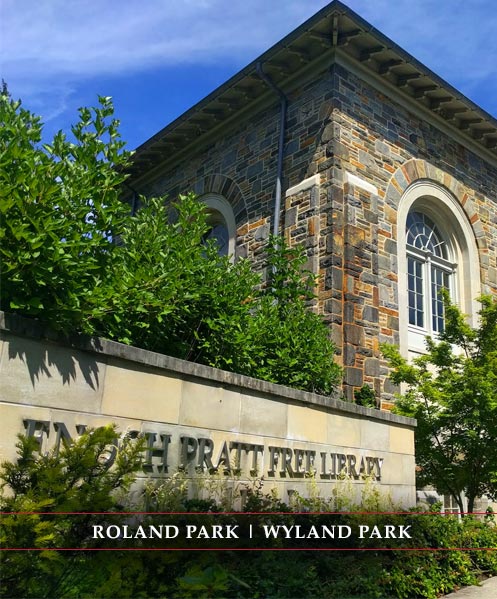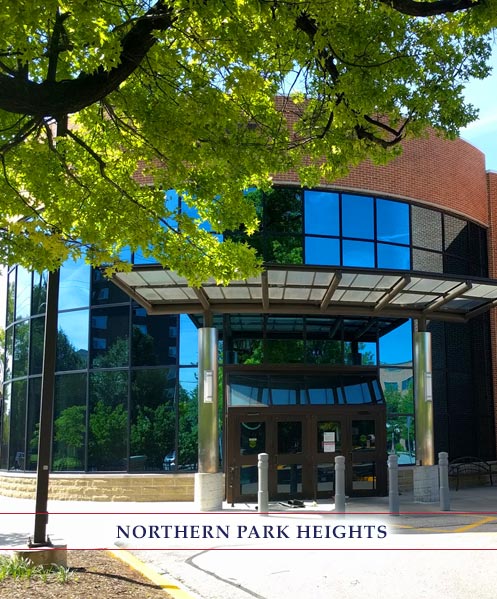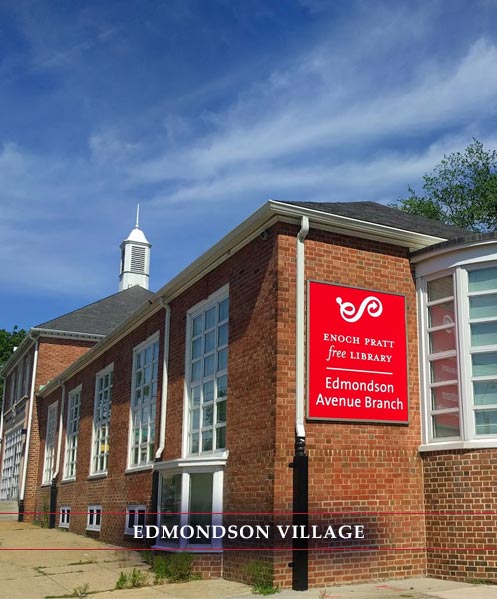Dear Friend,
We are a better state for ending the death penalty.
Capital punishment is costly, is not administered fairly, burdens victims’ families, and does not deter murderers. We will no longer spend time and resources on capital punishment in our courts and in the General Assembly. We can concentrate instead on policies that will keep us safe in our daily lives and use some of the money saved to help the families of homicide victims.
That’s why I led the fight to repeal the death penalty.
I also worked for the passage of the legislation we adopted to modernize school buildings in Baltimore City and to reduce the risk of gun violence. Approximately $1 billion can now be invested in new and modernized schools, where our children and teachers will be able to focus on learning with modern technology in a safe environment.
Under this plan, more than two dozen schools will close, including several in the 41st District. At my initiative, a process to arrange for productive use of these buildings will be developed.
After the shooting in Tucson two years ago where Congresswoman Gaby Giffords was shot and others were killed, I pushed for the creation of a task force to review our laws concerning mental illness and firearms possession.
The comprehensive gun violence law that we passed this session will reduce the risk that someone with a mental illness can gain access to a gun. We also significantly increased funding for preventive services.
At this session, we created an historic path for the future of our state and neighborhoods. Additional resources will now be devoted to policing our communities. Our schools will be better places to learn. Gun violence will be reduced, and the mentally ill will receive preventive services. A sound transportation system will enhance the economy, and a rebuilt Pimlico Race Track will benefit neighboring communities.
I welcome your thoughts on the work I did in Annapolis.
Protecting our right to vote – Sunday voting and petition signatures
When the fundamental right to vote is at stake, we must have a system that maximizes turnout, with sanctions for those who commit fraudulent acts or seek to prevent others from voting.
The day before Hurricane Sandy blew into town, I wanted to thank early voters at the former Pimlico Junior High. I had to park three blocks away. The line of people waiting to cast their ballots snaked around both sides of the entire first floor hallway. The expected wait was more than three hours.
When I got home, I began work on a bill to extend early voting to the Sunday before Election Day. The State Board of Elections, however, expressed concerns that early voting on that Sunday would leave too little time before 7 a.m. on Tuesday to download the data on who had already voted to the electronic poll books used at each precinct.
My bill did not pass, but the State Board of Elections will study the impact of Sunday voting on voter turnout and the technical changes required to implement this reform. A report is due by the end of this year.
Three issues were petitioned to referendum and decided by the voters last November. That could happen to the gun control and death penalty legislation we passed this session. The integrity of gathering signatures for a referendum must be protected, just as we do for the act of voting.
House Bill 221 would apply the same penalties to improper conduct by either side during a referendum petition drive. Under existing law, it is a misdemeanor to obtain, or attempt to obtain, any signature to a petition by fraud, duress, or force. Under my bill, it would also be illegal to use fraud, duress, or force to prevent, hinder, or delay another person from lawfully signing a petition. HB 221 passed the House unanimously but died in the Senate.
Lead Poisoning – Preventing Harm to Pregnant Woman and Young Children
Throughout my career, I have worked to prevent lead poisoning. The federal Centers for Disease Control recently found that even lower amounts of lead in the blood can be harmful to pregnant women and young children. Baltimore City is already informing these families about the steps they should take, including diet and how to prevent further exposure.
I introduced legislation to require all local health departments to notify parents or individuals who are tested and found to have unacceptable blood lead levels under these standards. Property owners would also be notified. The bill did not pass, but I will meet with state officials to discuss additional preventive steps that can be taken.
Aging in Place – Improving Steps, Lighting, and Hallways
Many seniors can remain in the homes they own if minor but important changes are made. They may have difficulty climbing those familiar steps, need better lighting due to vision problems, or require wider hallways to make room for walkers and wheelchairs.
Many seniors don’t know about programs that can reduce the cost of making these home improvements or about other benefits designed for them. The same is true for many of the people that counsel the elderly. They may know about certain programs but not others.
Last year, I introduced legislation creating the Task Force to Study the Renovation and Repair Needs of Senior Homeowners. This session, I implemented its recommendations.
The Accessible Homes for Senior Homeowners Grant Program will provide grants to finance an accessibility-related renovation or repair, such as the installation of ramps or chairlifts. Options counselors will help seniors sort through these programs, including the one created by House Bill 957.
Neighborhoods – Off-Street Parking, Development Plans, and the Red Line
For the last ten years, approximately 1,000 employees of Sinai Hospital and the Levindale Hebrew Geriatric Center and Hospital have parked daily on the Preakness Way lot owned by Pimlico Race Course – only a short walk or shuttle ride from their jobs. Just as important, they are not parking in the nearby residential neighborhoods of Cylburn, Sunset, and Levindale.
Pimlico will construct 300 stables when the Bowie training facility closes, plus housing for backstretch employees. On February 1, the track submitted a preliminary construction plan with the stables and housing located on the Preakness Way lot and no parking. My 41st District colleagues, Senator Lisa Gladden, Delegates Jill Carter and Nathaniel Oaks, and I expressed our concerns about the negative effect this would have on the track’s neighbors – our constituents.
Our efforts helped bring about a meeting of Pimlico and Sinai officials. The result: when the parking area needs to be vacated to construct new stables, the track has committed to working with Sinai to provide parking for these employees at another location on track property. A win-win for everybody.
In this fiscal year, slots revenues will generate an estimated $4 million for the neighborhoods surrounding Pimlico Race Track. The 41st District delegation successfully sponsored legislation requiring that these funds be spent consistent with long-term development plans for these communities. In addition, when the casino opens in South Baltimore, money will also be provided to the Arlington, Ashburton, Dolfield, and Grove Park communities.
The Red Line – both underground and surface rail, would run from Woodlawn, through Edmondson Village and downtown, onto Fells Point and Bayview. It could be a key component to revitalizing West Baltimore.
This line could not be financed without the gas tax increase that the General Assembly adopted and I voted for. The state will train residents in our district for the construction jobs needed to build the Red Line and other elements of the transportation system, thanks to the efforts of Delegates Carter, Oaks and myself. Similar training opportunities should be provided before we build new schools in Baltimore. I am working on that as well.
No residents will be forced to leave their homes in order to build the Red Line under legislation sponsored by the 41st District delegation. Longtime City residents forced to relocate because of previous transportation projects should not be fearful of this development.
Mental Health – Addressing Needs Before a Crisis
Shortly after the Newtown shootings last December, I met with advocates for the mentally ill. “We don’t want the discussion in Annapolis to be limited to when the mentally ill should be denied guns,” I said.
We decided to introduce legislation outlining the unmet needs for services, the Mental Health and Substance Use Disorder Safety Net Act of 2013. Three items from this bill were funded in the Governor’s budget: expanded crisis response services, crisis intervention teams, and mental health first aid.
My bill was not the only factor that prompted the Governor to increase these vital services, but it played a part.
A person with a mental illness does not belong in an emergency room. The sooner he or she gets to a psychiatric bed the better. There is an on-line registry of these beds in private hospitals so that ER staff can find available and appropriate care sooner.
However, not all hospitals are participating. My legislation requiring a report on whether they should be required to do so did not pass, but that report will be done anyway, at the request of the chair of the House health committee.
Welfare Reform – Moving out of poverty
Helping low-income families move out of poverty by encouraging and rewarding work is the foundation for welfare reform in Maryland. Helping fathers reconnect with their families, find employment, resolve child support issues, overcome addiction, and learn parenting skills will benefit these men and their families.
House Bill 333 establishes the Couples Advancing Together Pilot Program, which will provide the tools for participants to achieve success in the home, the workplace, and society at large.
Participants will be required to develop a written family-focused career plan, learn skills that are necessary in the job market, and attend focus groups about employment and financial literacy, economic stability, and building healthy relationships.
Temporary Cash Assistance (TCA) benefits are reduced by 60 cents for every dollar a person earns, starting with the first dollar. State-supported child care with zero co-pay is also withdrawn. The result: families who are just emerging from financial hardship are sometimes no better – and occasionally even worse off – than before they began working.
Under the Earned Income Disregard Pilot Program that I introduced, participants will have no reduction in benefits for the first three months of employment. For the next six months of employment, 60% of the income would be disregarded when calculating benefits. This step-down process will help families settle into their jobs, aid them in meeting up-front work expenses and paying overdue bills, and extend their zero co-pay child care support.
Social impact bonds, also called “Pay for Success” bonds, seek to align the interests of investors with a desirable social outcome. Typically, when the government contracts with a nonprofit, it makes payment based upon the volume of services delivered.
With a social impact bond, payment is made to the bondholders only if the desired outcomes occur. My legislation helped bring about a study of whether we should do this in Maryland.
Race to the Tots – Learning Before Kindergarten
Children who learn the names and sounds of letters before entering kindergarten are twenty times more likely to read simple words by the end of kindergarten than their counterparts.
“Study after study shows that the earlier a child begins learning, the better he or she does down the road,” declared President Obama in his State of the Union address. The President’s budget includes aid for states to make free prekindergarten education available nationwide.
“For every dollar invested today [in pre-K], savings range from $2.50 to as much as $17 in the years ahead,” concluded the Institute for a Competitive Workforce, an affiliate of the U.S. Chamber of Commerce.
The Race to the Tots bill, introduced by Senator Bill Ferguson and me, is modeled after the President’s education reform, Race to the Top. It would create a competitive grant program to stimulate innovation and expand access to high-quality early childhood education.
The program promotes accountability for school readiness, coordination of standards and practices for professional development of early childhood educators, and community “hubs” to address any health, behavioral, and developmental needs of children with high needs.
Our legislation did not pass, but we’re already working on getting it funded next year.
Many parents with children in parochial schools are burdened by tuition costs. The state has funded the purchase of textbooks for these schools for over a decade. I was instrumental in persuading the Governor to budget an additional $1.5 million.
Helping the Blind On Line
We take for granted the things we can do on the Internet. The blind cannot.
House Bill 550 would have created a tax credit for businesses that make their websites fully and equally accessible to and independently usable by blind individuals. The Governor’s Office of Disabilities will study how this incentive could work.
Phased retirement – Benefiting the New and the Old
Many employees nearing retirement would love to work part-time. Some want to spend more time with their grandchildren while others are taking care of a parent. Phased retirement permits people to work less, while they mentor their successors.
Many private businesses offer such employment to retain their older workers. In response to a bill I introduced, a task force will study the best way to implement phased retirement in state government.
Financial disclosure – Maintaining Trust
Your trust in your elected officials is crucial to our system of representative government. A legislator’s improper or inappropriate influence over a state agency, or even the appearance of such conduct, can damage that trust.
A legislator who has represented a person or company for compensation before a state agency must disclose that in an annual financial disclosure statement but not until months later, after the work was done. Consequently, the affected agency may be unaware that the legislator was representing a private individual, instead of acting on behalf of his or her constituents.
My legislation would require timelier reporting. When the initial contact is made with a state official or employee, a legislator would be required to file a written disclosure with the highest ranking person in the agency as well as the office of the relevant official or employee. My bill was referred to summer study.
It is my pleasure and honor to represent you in Annapolis. I welcome your comments and ideas on issues of concern.













